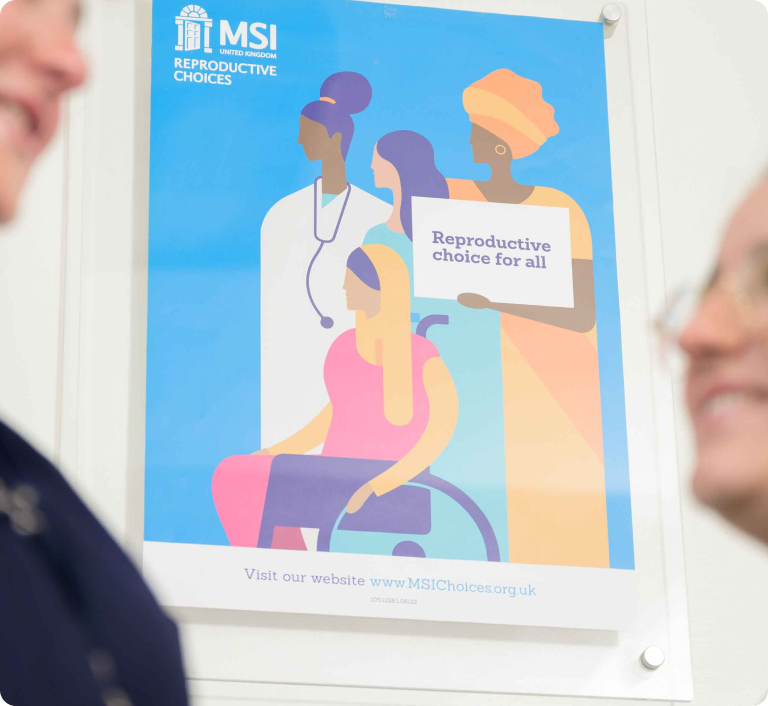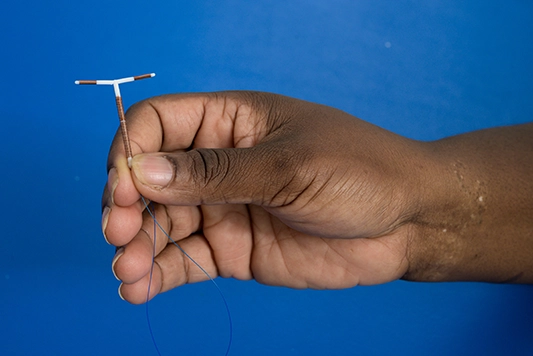Since this blog was published, abortion clinic buffer zones have been signed into law in England and Wales. Click here to read our full statement on the news: Safe access zones around abortion clinics are signed into law in England and Wales
London, 26th January 2021
“I felt like I was running a gauntlet everyday just to get to work”. It is fantastic that councils like Ealing have put buffer zones around abortion clinics. But the right to have a safe abortion in private and with dignity should not depend upon where you live.
Why do we need national buffer zone legislation?
Since Ealing Council established the first ‘buffer zone’ around our West London National Treatment centre, a spotlight has been on anti-abortion harassment outside clinics. As Richmond and Manchester Councils followed suit, it became clear that this isn’t an isolated issue, and that leaving it up to the arbitrary discretion of local authorities is not good enough.
It’s brilliant to see bold local leadership on abortion access from Ealing, Manchester and Richmond Councils. But your right to have a safe abortion, in private and with dignity should not depend upon where in the country you happen to live. It’s time for the government to stand up to the tiny but loud minority of anti-abortion bullies. Hounding people while they try to access medical care should quite simply be against the law.
The question of national legislation is not new. Parliamentarians are already raising the issue in the House of Commons. Rupa Huq, the Labour MP for Ealing Central and Acton introduced her Demonstrations (Abortion Clinics) Bill last year, and there is a similar Bill in progress from the Liberal Democrat MP for Richmond Park, Sarah Olney.
The Home Office itself held a consultation on this issue back in 2018. Despite over 44 clinics around the country facing hostile demonstrations on their doorsteps, the then-home secretary Sajid Javid felt national action would not be “proportionate.” Since then, the Home Office has faced repeated calls for national legislation.
Home secretary Priti Patel knows that right now, visiting an abortion clinic means you risk being spat on, shouted at, prayed at, photographed, jeered at, lied to, generally humiliated and, on occasion, blocked from entering the clinic altogether. She also knows that there are concerns about the evidence itself considered by her predecessor when reviewing this over two years ago.
The difference between protest and harassment
As a global pro-choice organisation, MSI Reproductive Choices fiercely defends freedom of expression around the world, even for those we disagree with. But there’s a difference between protest and harassment; there’s a difference between free speech and misinformation.
These bullying behaviours are not reasonable expressions of free speech. The goal is not to debate different points of view. The goal is to intimidate. The truth is that these anti-choice aggressors simply do not trust people, especially women, to make decisions about our own lives. They believe they know better than you do whether you should be pregnant or not.
We aren’t interested in arguments about the intentions of anti-choice campaigners. Their intentions are irrelevant. What we care about is the impact their actions have on other people. We hear heartbreaking stories from patients who are genuinely traumatised by the experience of walking through shouting, shaming crowds, in order to access a perfectly legal medical service – a service which one in three women* will choose at some point in their lives.
It’s distressing for anyone to be hounded by strangers in the street at such a personal moment, but what makes this behaviour even more outrageous is that many of the people they harass are extremely vulnerable. Some have been raped or survived abuse. Some still live with an abuser. Some are at risk of so-called ‘honour’ violence.
Centre manager Sally O’Brien said it feels like she is “running a gauntlet every day, just to get to work.” Sally told us how she saw the brother of one rape survivor become deeply distressed himself after his sister was stopped by the anti-choice agitators. We have been told stories of people being redirected away from the clinic when they ask for directions or being intimidated out of visiting the clinic altogether.
Not only are these behaviours distressing, but they are also dangerous. Medically inaccurate claims are promoted in leaflets and signs. We can hopefully all agree that misinformation, particularly of a medical nature is very serious, no matter what you feel about abortion.
Why PSPOs are not enough
Buffer zones in the form of Public Spaces Protection Orders (PSPOs) have been helpful, but the anti-choice groups have not disappeared. They are often still there, just outside the buffer zone. Clinics with no buffer zone, such as those in South Gloucestershire and Camden continue to attract harassment and misinformation. And PSPOs, by their very nature, are only ever a temporary fix.
To renew a PSPO every three years costs time and money. Ealing Council has just finished consulting on whether to renew the existing PSPO, amid broad agreement from those affected that it has been successful. While the legal basis for introducing PSPOs is sound, fear of legal challenge creates uncertainty for councils. The renewal date for each PSPO will always serve as a focal point for anti-abortion groups to organise. Should any councils take the decision not to renew a PSPO, even for some obscure technical reason, this could serve as a green light for the anti-choice groups not only to return, but to escalate their behaviour, as it validates the idea that what they’re doing is acceptable.
This goes beyond the right to peaceful protest. Ultimately this is not about whether you agree or disagree with abortion. This is about whether you agree that the loudest among us should be allowed to influence what medical care everyone else can access.
That’s why the Archbishop of Canterbury himself, Justin Welby has backed local buffer zones around abortion clinics. “People going to abortion clinics,” he said, in an interview with LBC radio last year, “whatever you think of abortion, are human beings. The Church of England has a very clear view on [abortion] – but how do we love the people who are going there? Treat them as human beings, and value and respect them.”
If the government won’t listen to us on that point, perhaps they will listen to him.
*Not everyone who has an abortion is a woman, but we know that one in three women do have an abortion.
Useful links
To read our other blog ‘Will there ever be abortion clinic buffer zones?’, click here.











































